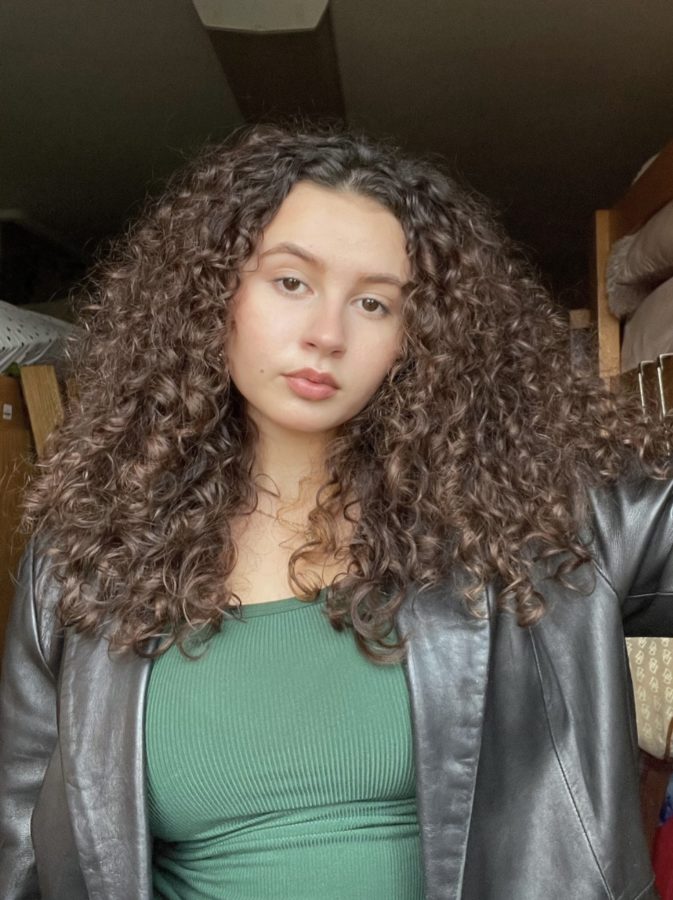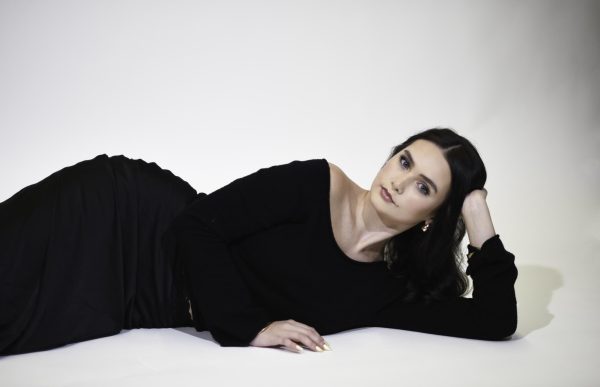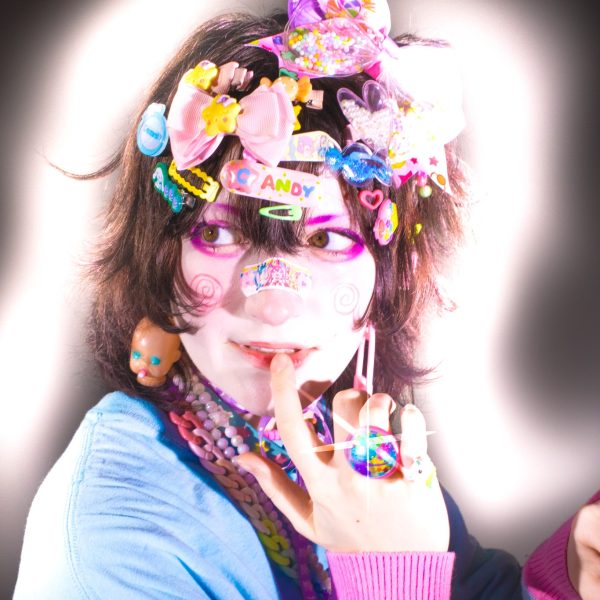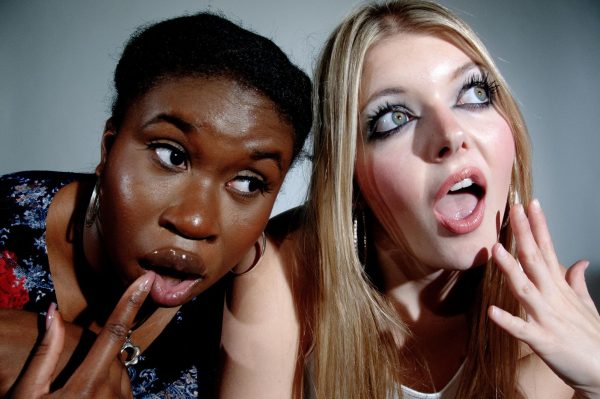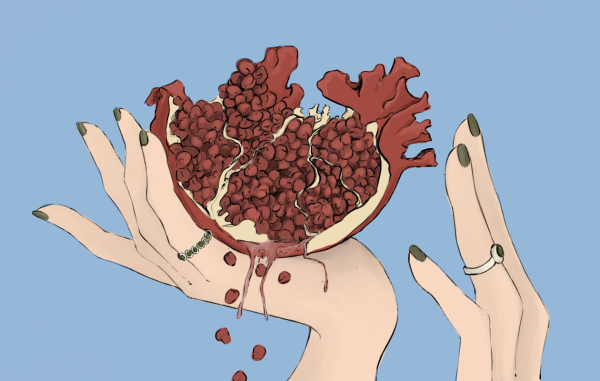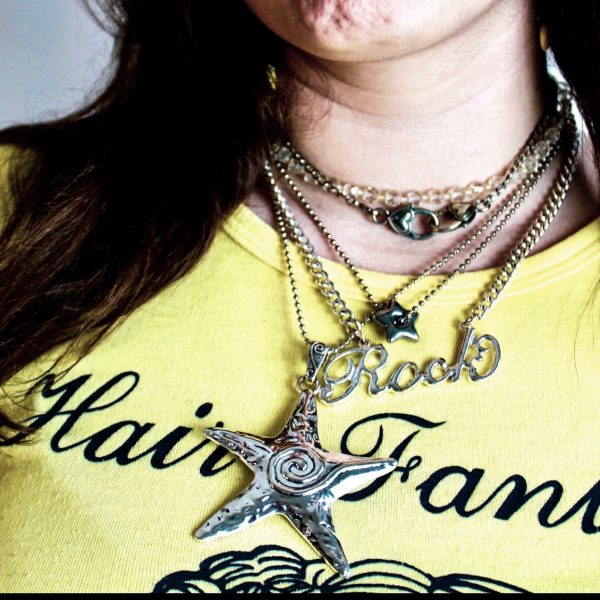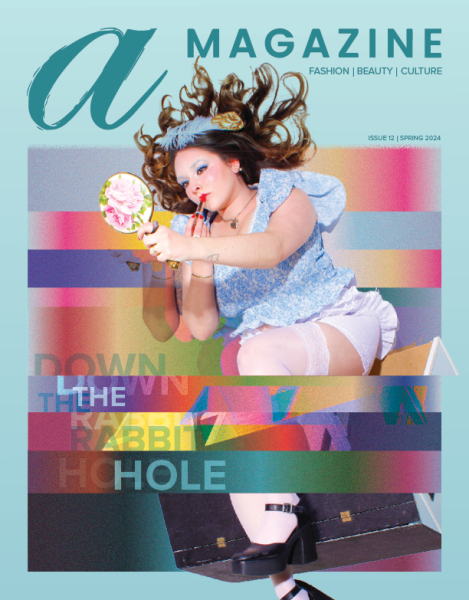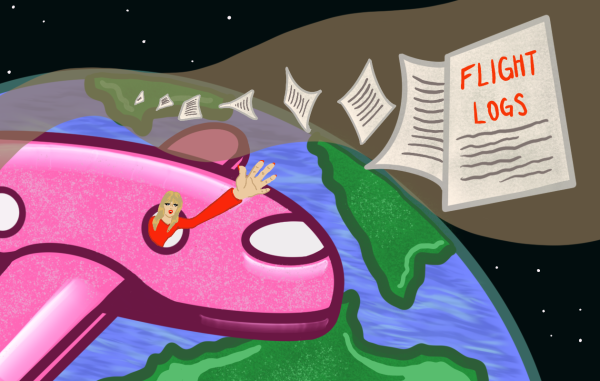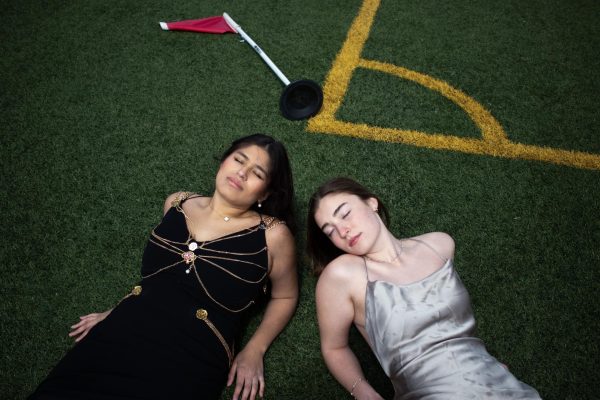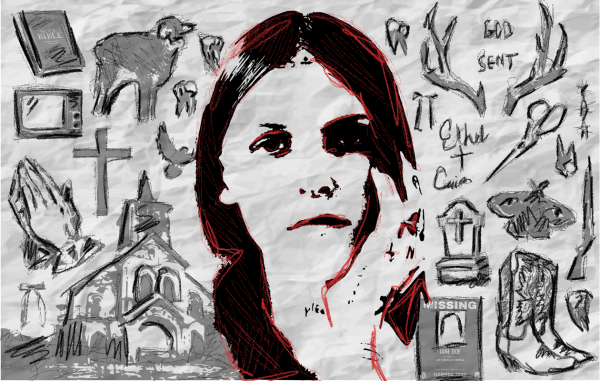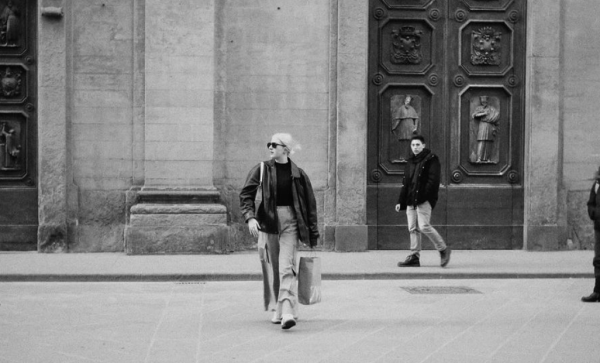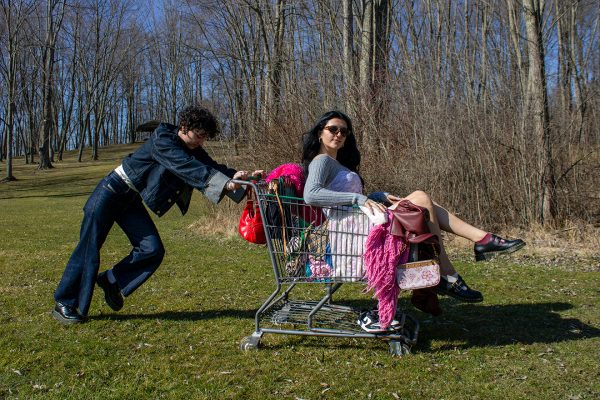embracing my hispanic heritage
When speaking about my own identity, it’s impossible not to speak about my ethnic and racial identity. How I was raised versus my environment has inevitably shaped the way I see myself through a racial lens.
Growing up, I felt as though I was perceived and questioned more than others around me. When I was a young woman, I always felt left behind and I couldn’t comprehend why. It was and still seems as though there is a part of me that people didn’t care to understand.
My father is white, mostly Irish and German, while my mother is Hispanic. My mom’s side of the family is from Mexico and I just recently found out that we have family that still live there, in Jalisco running a meat shop.
I was born in Columbus, Ohio, and never migrated far from that area. I grew up in a small suburban town in Pickerington alongside my four brothers. For a while, there weren’t many families or much to do around there. When my youngest brother and I got to high school, it seemed as though our town was more diverse. However, my high school had a strong reputation that revolved around athletics and not much else. It was challenging to feel like I fit in anywhere. A diversity club was developed when I was a freshman and I became a part of the club for three years. I was a part of school events and worked with my peers on the Black History Month productions we put on. Being a part of the club gave me a sense of purpose, but even so, I still felt like I was missing.
It can be challenging to get established anywhere, but it’s even more challenging when you feel like you aren’t welcome.
Family means everything to me. I always had a tight relationship with my brothers. My parents made an effort for us to spend quality time with each other. We had dinner together discussing our highs and lows of the day. We watched movies and cooked together. We would enjoy apple picking every year around this time. Even though we said we hated it, deep down it’s been a comfort, a tradition if you will, to us all.
Both of my parents didn’t have the same opportunities my brothers and I had growing up. My parents knew when they got married that they wanted to live differently when they had kids.
My mother grew up in northeast Ohio and at one point lived in a trailer with her parents and three siblings. My mom doesn’t like to talk about her childhood much because she felt like she didn’t have one. I never understood many stories from my mom’s past until now that I’m more independent and not so vulnerable to the influence of others.
It became clear why she was structured with me and how I present myself to others. She would only be able to tell me what it was like for her as a young Latina woman growing up in the ‘80s now that I have grown up and faced things myself.
My mother had a different type of relationship with her mother, my Mimi. They never had super deep talks about anything and it left my mom having to be independent and learn fast. I never confided in my mom much about the problems I would have at school with my peers because I wanted her to know I could handle it. The truth is, it was hard but I learned to let go for the moment. Be independent. Keep calm. Don’t interact.
What would stick out to me the most was how much control my peers and even some of my teachers thought they could have over me. Control what I would say, do, wear and how I grew up. It was an endless cycle of simultaneously being too much and not enough.
“You have such hairy arms for a white girl.”
“How come you don’t speak Spanish?”
“Your butt isn’t big enough.”
“Why is your hair so curly?”
“Don’t you burn easily?”
This aggression left me feeling like I wasn’t Latina enough to have a voice, to be me. When I am asked to check a box for my ethnicity, it makes me think: Who am I? What is my nationality? Am I white? Am I Hispanic?
Looks were something I was continually ridiculed over, as if I was someone who needed to change. I asked myself, “Why did they care so much that I was different?” The main thing people notice when they see me is that I have a lighter complexion but my hair is too curly for me to be white. I am automatically said to be half white and half Black. It got to a point where people would expect me to say racial slurs and say, “It’s OK if you say it, you get a pass.” Comments like these made me uncomfortable. I was told what to do and say. When you’re that vulnerable and in that position for so long, it’s difficult to understand why my peers were treating me this way, as if my identity was a game.
I was told I didn’t have enough curves, that my legs were too long, to “cover up” because no one wanted to see that and that my features weren’t “typical” features. Guys would spread words to “not go near the monkey girl” because my arms were more hairy than my other peers. It made it hard for me to hear others say I’m beautiful or attractive because for so long, I never felt that way.
Coming to Kent has allowed me to start fresh, to come out of my shell. I was tired of wearing sweatshirts and pants to cover up my figure just because others made me insecure. I am beautiful because of who I am as a person and what I look like is not something to judge. When my peers would be curious based on my looks, it was a form of comparison instead of appreciating what makes me so unique, what makes us ALL different.
I was told no one wanted to listen to my opinion. I will never forget the time in eighth grade when a “close friend” of mine told me to “go back to where I came from.” I was denied who I was for a long time. Although I certainly cannot complain about being in a position of privilege when it comes to my skin color, I have realized it has shaped how I connect to my mom’s family and the community at large.
My first tattoo is dedicated to my grandmothers who have passed away. It is of a butterfly but one of its wings is made of roses. My father’s mother’s name is Sharon Rose. My Mimi, Juana, would tell my mom to look for a white butterfly when she passed. She would relay in her own ways that she would always be with us and from time to time “come back and haunt us.”
Underneath my tattoo is the saying “siempre contigo” which means always with you in Spanish. Ever since I got that tattoo, which has special meaning to me, I’m often asked, “Do you even know what that means?” rather than asking what special meaning it holds to me. Others would question why I got the saying in Spanish, making me feel even more like I don’t deserve to cherish the memories, honor my Mimi and remember my family the way I do.
I won’t be the first to admit that I am completely embarrassed that I don’t speak Spanish. I feel like I am not connected enough to who I am sometimes. I feel like a failure because growing up I had the people around me feel like I wasn’t enough. That I had to speak Spanish or else I wasn’t Latina. A lot of these built-up emotions started to pour out of me as I got older. Physically, I look more like my mom’s side of the family and crave to know the rest of what makes me, me. I feel drawn, more than ever, to be connected to my roots after losing my grandparents and supporting my mom through a long two year battle with Lou Gehrig’s disease.
My grandmother spoke Spanish but she never taught my mom or her siblings when they were growing up. For a while, I was upset over this. Sometimes I still am, but I can understand why she didn’t. She lived in the United States, apart from her culture, away from her siblings that lived in different parts of the country and apart from what she knew, what she missed. She had her belonging: her children. The unconditional love she radiated through us grandkids showed in our family dynamic. We stick together through thick and thin. No matter what, family is the most important thing.
Coming to college, I have a different outlook on a lot of things. My high school was diverse when I entered it, but no one felt accepted. Here at Kent, it is the opposite. There isn’t much diversity, but I do feel welcome. However, due to the lack of diversity, there is only so much you can know and be a part of. For the longest time, I haven’t felt like I have had a strong, stable community. I don’t know what it’s like to have that form of consistency in my life.
Over the past year, I have come to appreciate how significant it is in my life, especially at my lowest times of not being heard or understood. Community brings a lot of peace to my life, not just with my family or small friend group, but also with my environment and the experiences of others. Only a few of my friends can relate to my concerns about conflicting cultural backgrounds and one of them is 900 miles away.
We all accept the love we think we deserve, right? It has been a journey for me as a young Latinx woman to be comfortable in my skin and genuinely feel that. To accept more love within myself than coming from a competition from others.
I don’t want this to be the highlight of Livi Roberts. Instead, I am using this to show how much of an honor and privilege it is to be representing my heritage and my transformation. It is for this reason that I joined the A Magazine and why representing Hispanic Heritage Month is important to me. I want to show others that there can be a sense of belonging even if it means you are the change you wish to see. Don’t be afraid to put yourself out there.
You are not alone. It is a scary journey. At times, I was afraid to speak up. However, I have a voice and I need to use it. I don’t want to be quiet. It is a desire I have to speak up with confidence.
Being a Latina in America is both an honor and a challenge. It’s a struggle with the dualities of worlds colliding. I have always struggled with the adjectives that defined me and that defines a lot of people of Hispanic/Latina/o/x communities. We are a mix of races, traditions and experiences. The complexity of our identities can help us create a better world for all of us. A world where our differences are not viewed as a threat, but as an asset.
I wish there was more diversity throughout Kent’s campus. I wish more clubs and organizations of these communities existed here so people like me felt a sense of belonging. I hope I can be part of that change and I hope my words help others see that and want to join me. I hope expressing myself allows others to feel comfortable doing the same. It is knowing and seeing others like me who have similar experiences that make me who I am today.
Support Student Media
Hi, I’m Catie Pusateri, the Editor-in-Chief of A Magazine. My staff and I are committed to bringing you the most important and entertaining news from the realms of fashion, beauty and culture. We are full-time students and hard-working journalists. While we receive support from the student media fee and earned revenue such as advertising, both of those continue to decline. Your generous gift of any amount will help enhance our student experience as we grow into working professionals. Please go here to donate to A Magazine.

